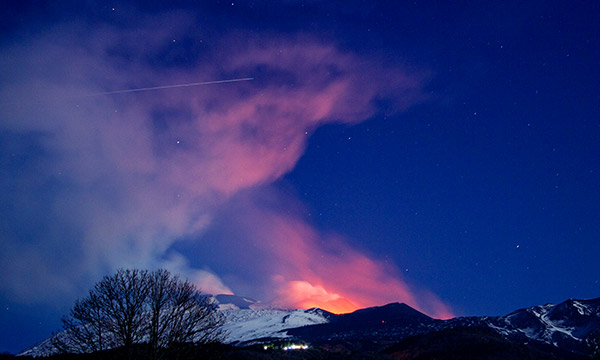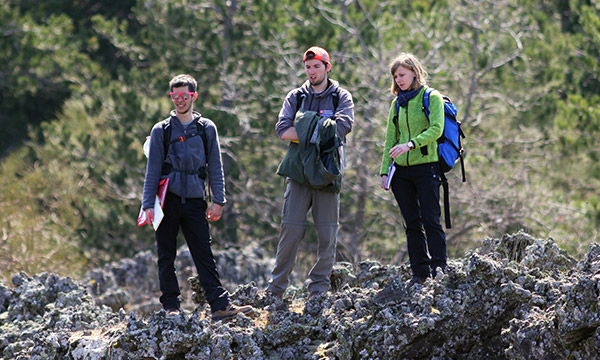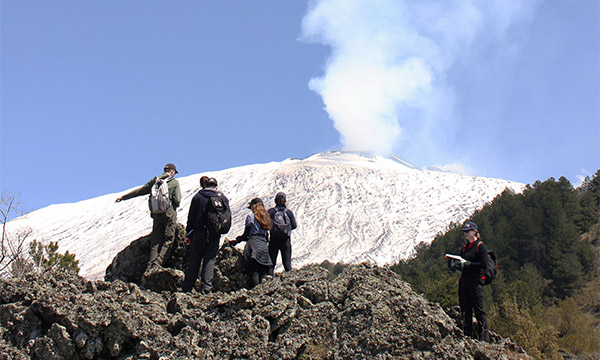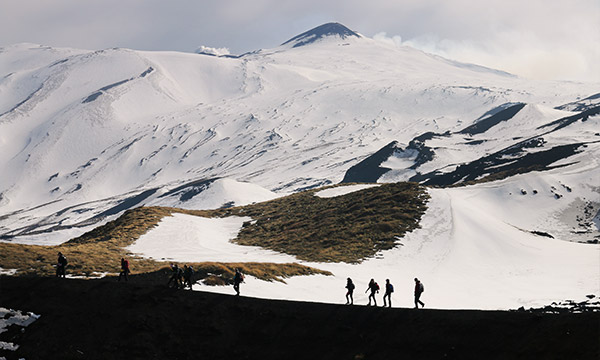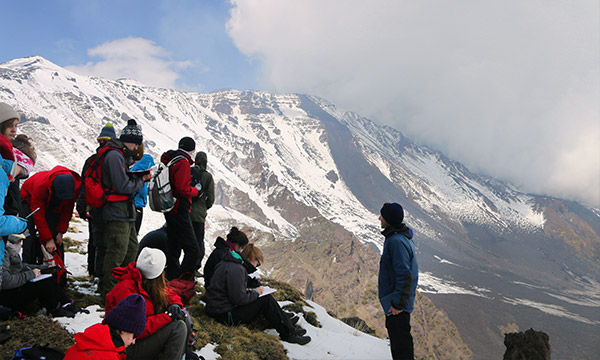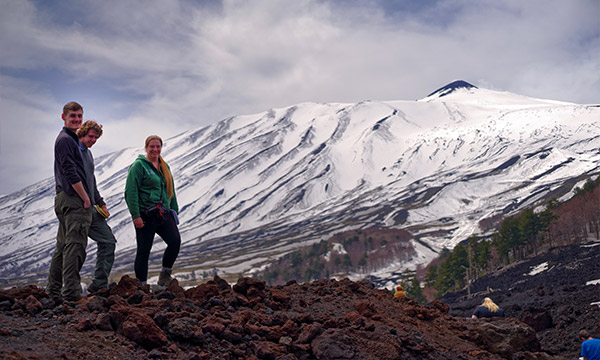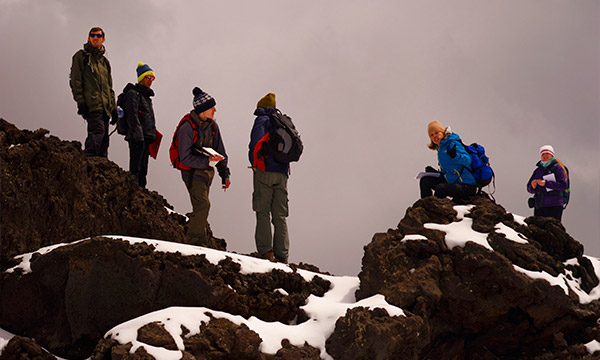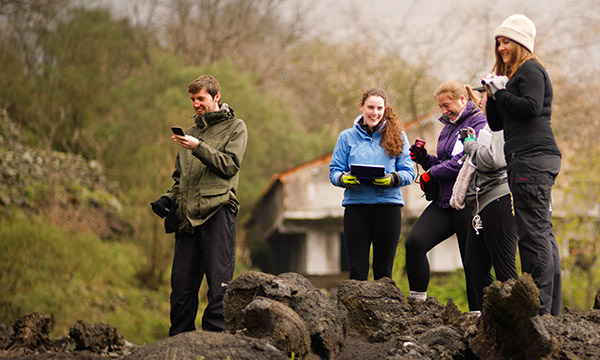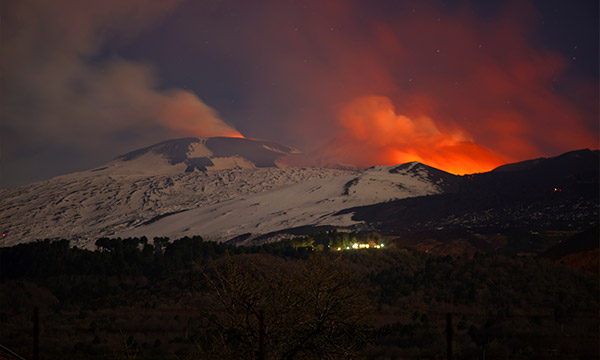Visit Europe’s largest active volcano, Mount Etna, and study the complex processes that take place both on the surface and beneath volcanoes.
During this intensive week-long field course, you will explore a number of the physical volcanic processes that take place, including lava flow emplacement, explosive events and the evolution of a basaltic volcano. In addition, you will evaluate methods of managing volcanic hazards on heavily populated active volcanoes.
Dr Mike James, who leads the trip, says “Through spending time on a large active volcano, students can develop a first-hand appreciation of the real magnitude of volcanic processes. Whilst walking over recent deposits such as lava flows, we study how they were formed, linking the surface and sub-surface processes involved and considering the interactions between hazards, infrastructure and communities.”
If you opt to take Study Abroad year, modules and field courses available for year 3 will be chosen from your host university. The fieldwork options available are subject to pre-requisites.



